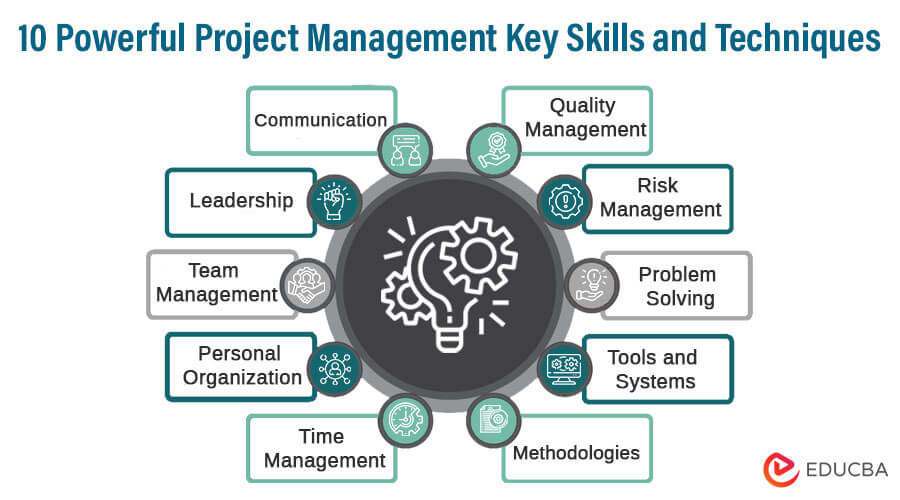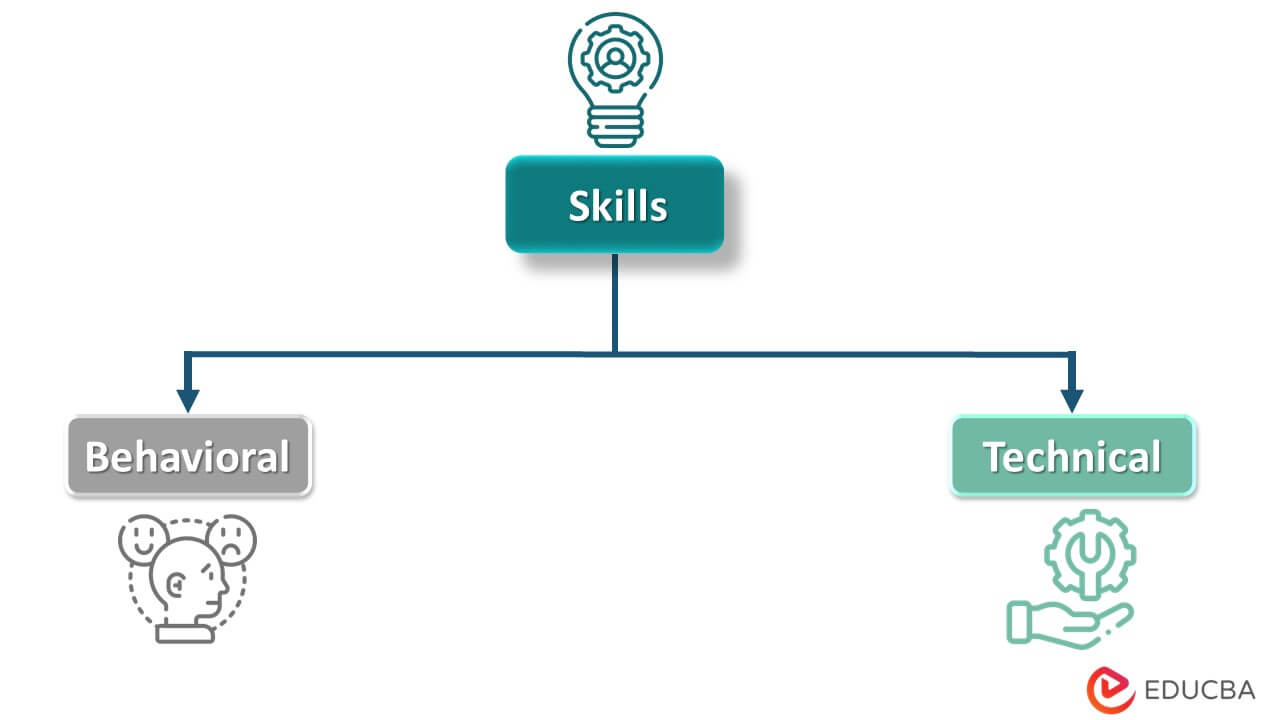
10 Project Management Key Skills:
The world is changing! With corporate life and businesses taking the world of industrialization to the next level, there is a great demand for individuals who can pose as mediators and “managers” to transition into this new world successfully we are looking at. These individuals possess project management key skills, unlike others, as they conquer all sorts of inhibitions and corporate issues to emerge victorious in building up a sophisticated business model and business strategy.
In the era of key project management skills, we look for these intellectual individuals who, through their presence of mind and thought, bring ideas and put into action plans that have never been seen before. Whether it is the use of technology or the simple use of methods and activities, this workforce is an essential part of how businesses function these days.
Are these naturally acquired skills, or can they be honed? You may have these skills passed on to you by your parents, but in most cases, there are skills that can be inculcated and polished through sheer hard work and perseverance. Who survives these regimes of learning and growing through these skills? What is a Project Manager? Individuals who have that innate zeal to achieve brilliance in every activity they conduct or participate in.
These individuals are called project managers, and they are masters of project management key skills. But, you may now ask me, how do we reach that stage where we are perfect project managers? While we don’t expect project managers to be perfect, they need a few essential project management key skills. This will enable them to be more than they already are and help them excel in their management tasks. Welcome into the realm of must-have project management key skills that could skyrocket your career as a project manager, getting you onto that high pedestal of complete success.
To begin with, you need to know a few basics of the entire skill paradigm of project management:
Project management key skills have two aspects: Behavioral Project Management Key Skills and Technical Project Management Key skills.
These project management key skills can be honed and utilized at the appropriate time and place to get out of sticky business situations and raise the level of business returns on investing in proper project management basics systems. So, let’s check out the 10 must-haves for your successful tenure as a project manager.
Behavioral Project Management Key Skills
#1: Communication
One of the most crucial project management key skills that employers look out for in successful project managers is fluent and precise communication. We, as humans, are social animals, and language is our link to each other. With the help of languages, we are able to place our needs and requirements in front of others, and with their help, via communication, we can inch towards finding solutions and gaining complete control over business models. This essential skill is the reason humankind has survived through the ages and has been able to build civilizations across the globe.
Returning to project management, relaying concise information to your team and other teams involved in your project is the key to successfully completing your project. Project managers should ensure that they communicate simply, clearly, and precisely. While project managers’ skills should not only deal with the top management but with their team members, their communication style should be that of direction, inspiration, and motivation.
#2: Leadership
While we are termed project “managers,” our behavior should insinuate the behavior of a true “leader”. So, what is the difference? While managers make people work for them and their instructions are almost direct, a leader will lead by example and have their teams follow them instead. Their way of instruction is mostly by mentoring and coaching, and in this way, they build ideas and execute them as a team.
Inspiring team members to complete the tasks on time and with the highest quality is important for any project manager. These individuals always have a personal vision to accomplish their own set of goals, and this way, they contribute personally and as a team towards the company’s own vision and mission. The fastest way to maneuver through project work is to look at it as a leader rather than just a manager of the different factors, leading to a successful project.
#3: Team Management
Knowing the strengths and weaknesses of your team members can surely be an additional benefit for you to make informed decisions when delegating work. Team management involves playing on these aspects of your team members and bringing them to a stage where, as a project manager, you can help them maximize their potential and get the work done in the fastest time possible and with the highest quality possible. Gaining your team members’ commitment is what good team management rides up to.
While team management and leadership go hand in hand, delegation comes as an important aspect of team management. Knowing your strengths and weaknesses facilitates getting the work done by the right people at the right time.
Team management skill also provides the right amount of motivation to the team to work as a single unit for a common company goal. This ensures that your project is heading in the right direction and is completely in line with team expectations.
#4: Personal Organization
Now, you’ve got on track to being a leader, an effective communicator, and an excellent team manager. The next in your ever-expanding skill set is completely organizing yourself. Yes, the personal organization stands as the single most important skill to hone, to get all the other skills in line. Personal organization is all about discipline and order. Once you have sorted everything that you’re concerned with and have complete clarity, you can conquer all hurdles and obstacles.
While a personal organization may be your own, it clearly dictates what you need and expect from others. A chaotic mind cannot bring about order in pressured situations. But being an organized individual will also help you remain calm and composed in trying situations. Nowadays, businesses run at an exhilarating pace with loads of data and information. Mostly a project manager has to deal with all of these. So, if you don’t have your own personal organization kit at hand, it’s going to be busier for you than ever, and before you know it, the time has caught up with you. This is surely not where you want to be as a project manager.
(https://www.woodenearth.com/collections/wood-homewares)
#5: Time Management
Tic! Toc! Tic! Toc! Time ticks away very quickly; before you know it, It’s Time. Time to submit to an impending sprint, time to get those updates right, time to present your findings to the top management, time to put those deadlines in place and meet them, and finally, time to record all of these and report and analyze every inch of findings and results. Time is of the essence, and this couldn’t be more true. Hence, time management stands out as yet another important skill that project managers are required to possess. Estimating and judging your plans for the day, week, or month and carefully executing them as per schedule is paramount.
Time wasted could result in a reduction in man-hours, thus, prompting closer-placed deadlines for milestones in a project. And the lesser time allotted for tasks drastically affects the quality of output. Subsequently, the entire workflow comes crashing down. With such repercussions on the loose, time management holds the key to putting together a great project timeline, and adherence to that timeline enhances the chances of success.
#6: Quality Management
Quality forms an integral part of any product out on the market. Even our internal organizational products need those qualitative sanctions to move ahead. Without the skill of accurately managing quality, building a certain level of trust within your project seems unfeasible. Quality calculations and measurements are very necessary at any level in your organization. Having sound knowledge and the skill to put in place quality indicators can boost the chances of a successful management career.
Being quality-oriented is an essential trait in any project manager. Excelling in this particular trait can distinguish you from the rest and make you the first choice for top-notch projects. Indulging in quality practices and looking at things from a qualitative perspective can allow you to gauge the receptiveness of your project and put the necessary systems and methodologies in place.
#7: Risk Management
Risk management involves the four processes of Identify-Assess-Evaluate-Monitor/Control, a universal standard process followed across all identifiable risks. Managing, controlling, or mitigating risks forms the crux of decision-making and project management fundamentals. Every project is bound to risks coming in different forms and sizes, and managing them in order to have a smooth workflow is the key skill of a project manager.
Identifying the various risks of the project requires a detailed study of the factors affecting the project. Once identified, assessing these risks’ impact or priority puts an important number on them. Thus, the project manager can effectively prioritize their steps ahead. Evaluating each risk and setting aside an error margin for them can give the project a buffer to stand by in case the risk is encountered.
No project manager would want to conduct firefighting at the end moment, but rather would in a position to be ready with mitigation plans for each possible risk scenario. This capability will put this particular project manager in a good spot, not risking the organization’s entire vision and mission.
#8: Problem-Solving
Each problem has a set of solutions that we must discover. Going about and searching for these solutions and implementing them are essential skills that employers look out for in successful project managers. Our corporate lives are full of nooks and gaps that crop up as issues and problems. Dealing with them at the right place and the right time is what problem-solving is all about. And the must-have skill of problem-solving isn’t something that can be naturally acquired. It comes to an individual after proper information, analysis, and decision-making in the right frame of mind.
A successful manager is one who not only spends time-solving problems for their clients and providing the necessary support but also who is ahead of time and discovers newer problems to be solved. As a result, this tremendously influences the organization’s direction and brings your skill set to the forefront.
Technical Project Management Key Skills
#9: Tools and Systems
Tools and systems play a crucial role in the life of a project manager. While project management key skills are all about achieving results with efficiency and agility, technology know-how stands as an important façade in between project managers and successful project managers. Being able to correctly use the latest project management tools and tech and develop a myriad of systems to enable the smooth functioning of tasks and assignments are soon going to be the USPs for any project manager.
Right now, there is an abundance on the market regarding tools and systems. The market has never been so alive. Tapping on such resources would yield benefits and prompt ROI for businesses, and you can make a name for yourself. Give yourself an added advantage by enhancing this skill of utilizing all the right tools for a particular given project.
#10: Methodologies
There’s a method attached to almost everything we do. And project management is no different. Techniques and best practices are things that have been followed for ages now. But, using the latest proven methodologies, or better still, coming up with methodologies on your own, can get you riveting in your skin.
With your methodologies in place, you can look out to maximize all your strategic benefits. With that correct sequence of steps, you can optimize processes and get results from your teams and projects. Be it agile project management in select cases and scenarios or the use of the waterfall model, these methodologies and detailed knowledge in them are essential to anyone rearing to go “project management” all the way.
All these project management key skills enlisted are intricately interwoven and support each other. Think of them as the bars on a musical equalizer. All must be in perfect balance and relative to each other to bring out the best in the music. These form the basic skill set for getting to that post of project manager and getting into its skin.
Recommended Article
Here are some further related articles for expanding understanding:


